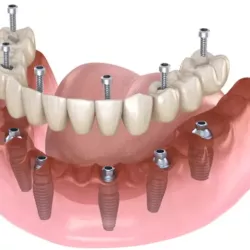Supporting Loved Ones with Anxiety: A Guide to Nurturing Mental Health
In today's fast-paced world, anxiety has become a common companion for many individuals. It's not uncommon to find someone within our circles struggling with this debilitating condition. As friends, family members, or partners, it's essential to understand how to provide the right support to our loved ones battling anxiety.
Unfortunately, anxiety can often lead people to seek reprieve through substances, whether legal or illegal. If you have a loved one whose anxiety has lead them to use alcohol or heroin, act before its too late and have them consider drug rehab.
While rehab is an effective way to learn how to cope with anxiety and addiction, it can be hard to convince addicts to change. Here are some practical strategies on how to be a pillar of strength for those navigating the rough waters of anxiety.
- Educate Yourself: Knowledge is power. Take the time to learn about anxiety disorders, their symptoms, triggers, and coping mechanisms. Understanding the condition better will enable you to empathize with your loved one's struggles and respond with sensitivity and patience.
- Be a Good Listener: Sometimes, all a person needs is someone who will lend an empathetic ear. Encourage your loved one to open up about their feelings without judgment. Practice active listening—validate their emotions and refrain from offering quick-fix solutions or dismissing their concerns.
- Offer Reassurance: Anxiety often feeds on irrational fears and uncertainties. Offer words of reassurance and support, reminding your loved one that they're not alone in their battle. Your unwavering belief in their strength and resilience can provide much-needed comfort during challenging times.
- Encourage Professional Help: While your support is invaluable, it's essential to encourage your loved one to seek professional help if their anxiety significantly impacts their daily life. Therapists, counselors, or psychiatrists can provide tailored treatment plans, including therapy, medication, or a combination of both.
- Respect Boundaries: Understand that everyone copes with anxiety differently. Respect your loved one's boundaries and avoid pressuring them into situations that may exacerbate their symptoms. Offer your assistance without imposing it, allowing them to take the lead in their journey towards healing.
- Practice Patience: Recovery from anxiety is a gradual process that requires time and patience. Be patient with your loved one's progress, celebrating even the smallest victories along the way. Avoid expressing frustration or disappointment, as it can hinder their recovery efforts.
- Promote Self-Care: Encourage your loved one to prioritize self-care activities that promote mental well-being. Whether it's practicing mindfulness, engaging in regular exercise, or pursuing hobbies they enjoy, self-care plays a crucial role in managing anxiety symptoms.
- Be Mindful of Triggers: Pay attention to potential triggers that exacerbate your loved one's anxiety and make an effort to minimize their exposure to such situations. Create a supportive environment that fosters feelings of safety and security.
- Lead by Example: Take care of your mental health and demonstrate healthy coping mechanisms in your own life. By prioritizing self-care and managing stress effectively, you set a positive example for your loved one to follow.
- Stay Positive: Maintain an optimistic outlook and instill hope in your loved one's journey towards recovery. Remind them that setbacks are a natural part of the process and that with perseverance and support, they can overcome any challenges that come their way.
In conclusion, supporting loved ones with anxiety requires empathy, patience, and understanding. By educating yourself about the condition, offering a listening ear, and encouraging professional help when needed, you can be a source of strength and comfort for those navigating the complexities of anxiety. Remember, your unwavering support can make a world of difference in their journey towards healing and recovery.
Omnia Recovery is a leading drug rehab in Thousand Oaks, CA. Our facility specializes in addiction treatment through behavioral health. Contact us today to learn more.
More to Read:
Previous Posts:


